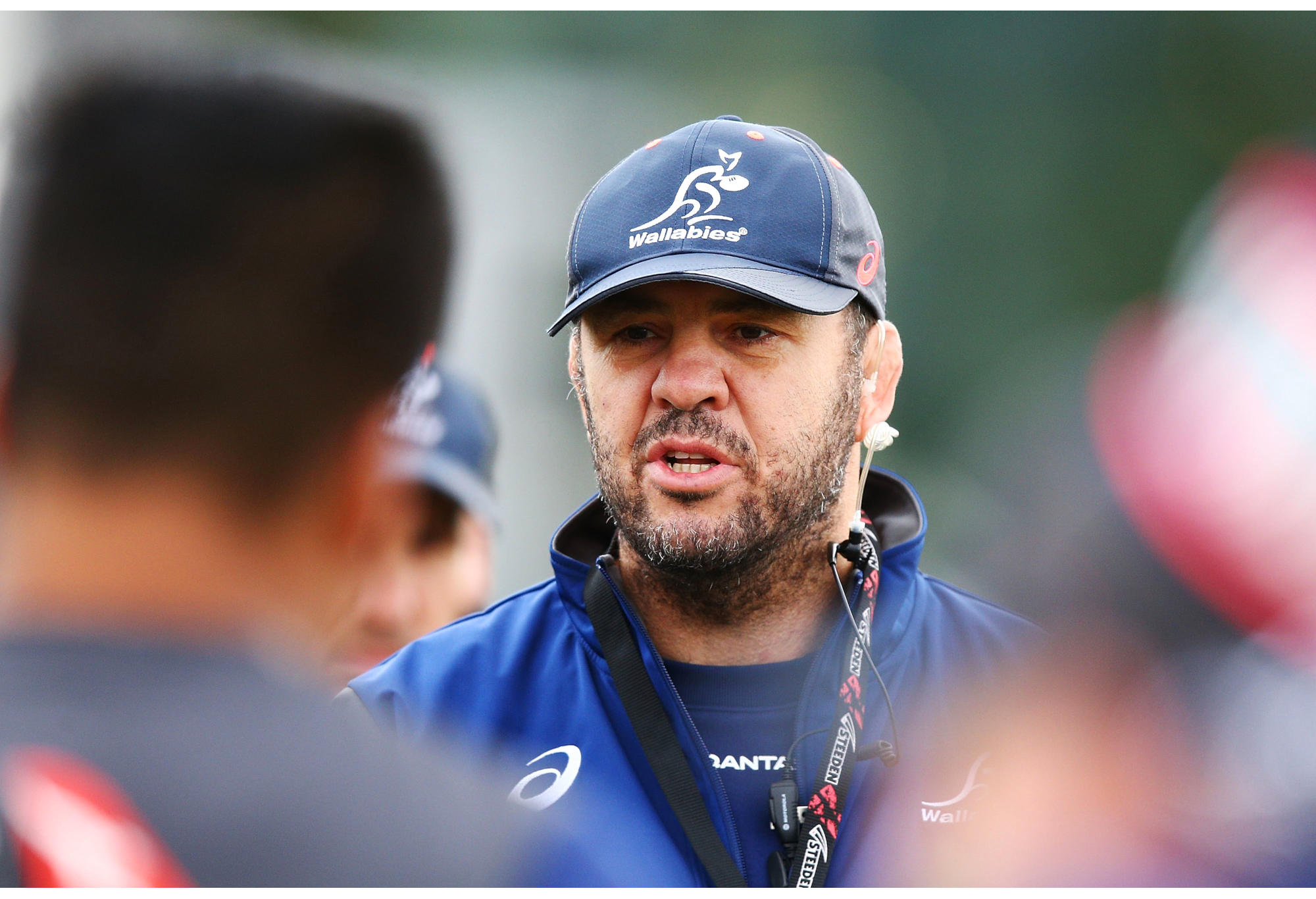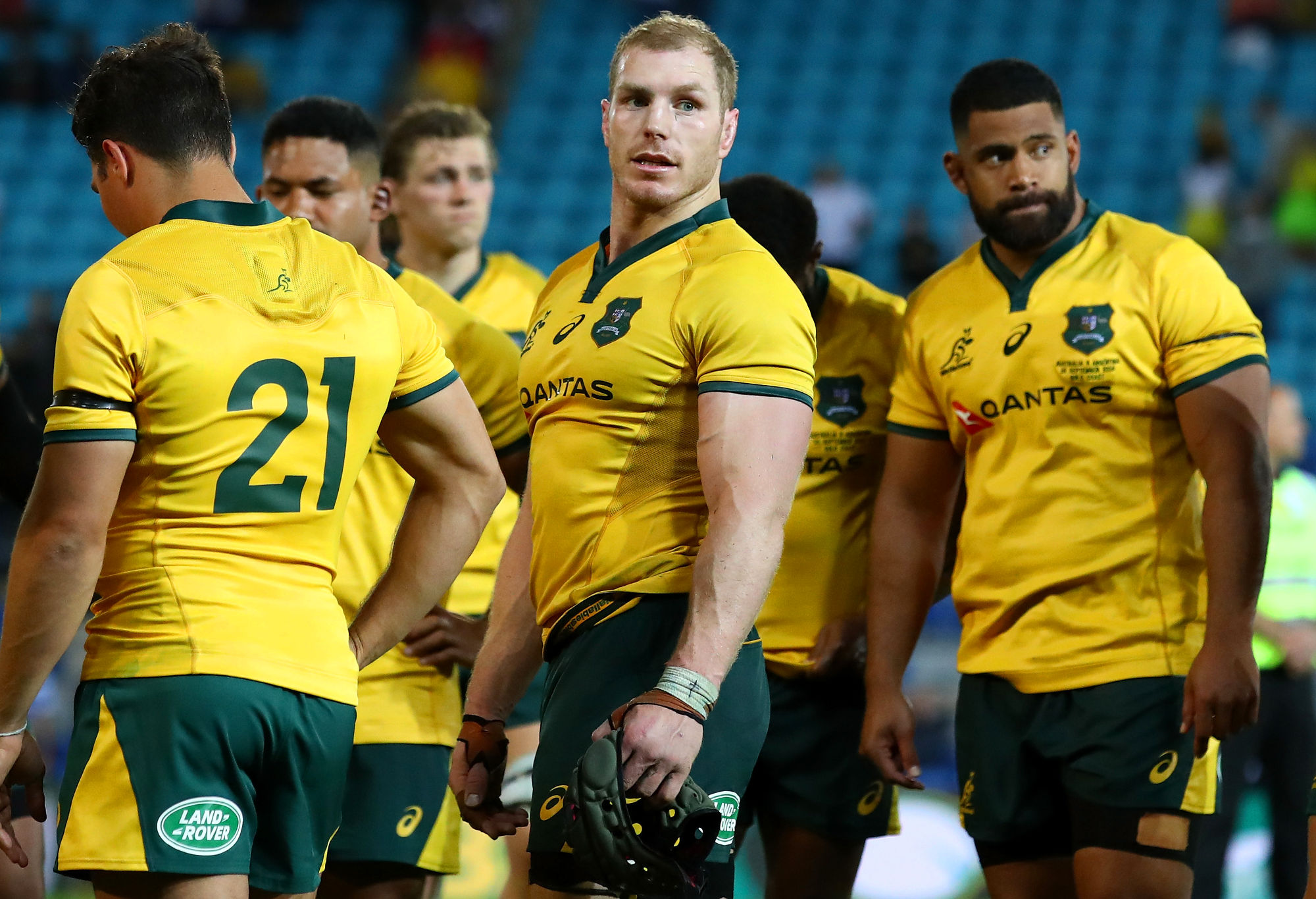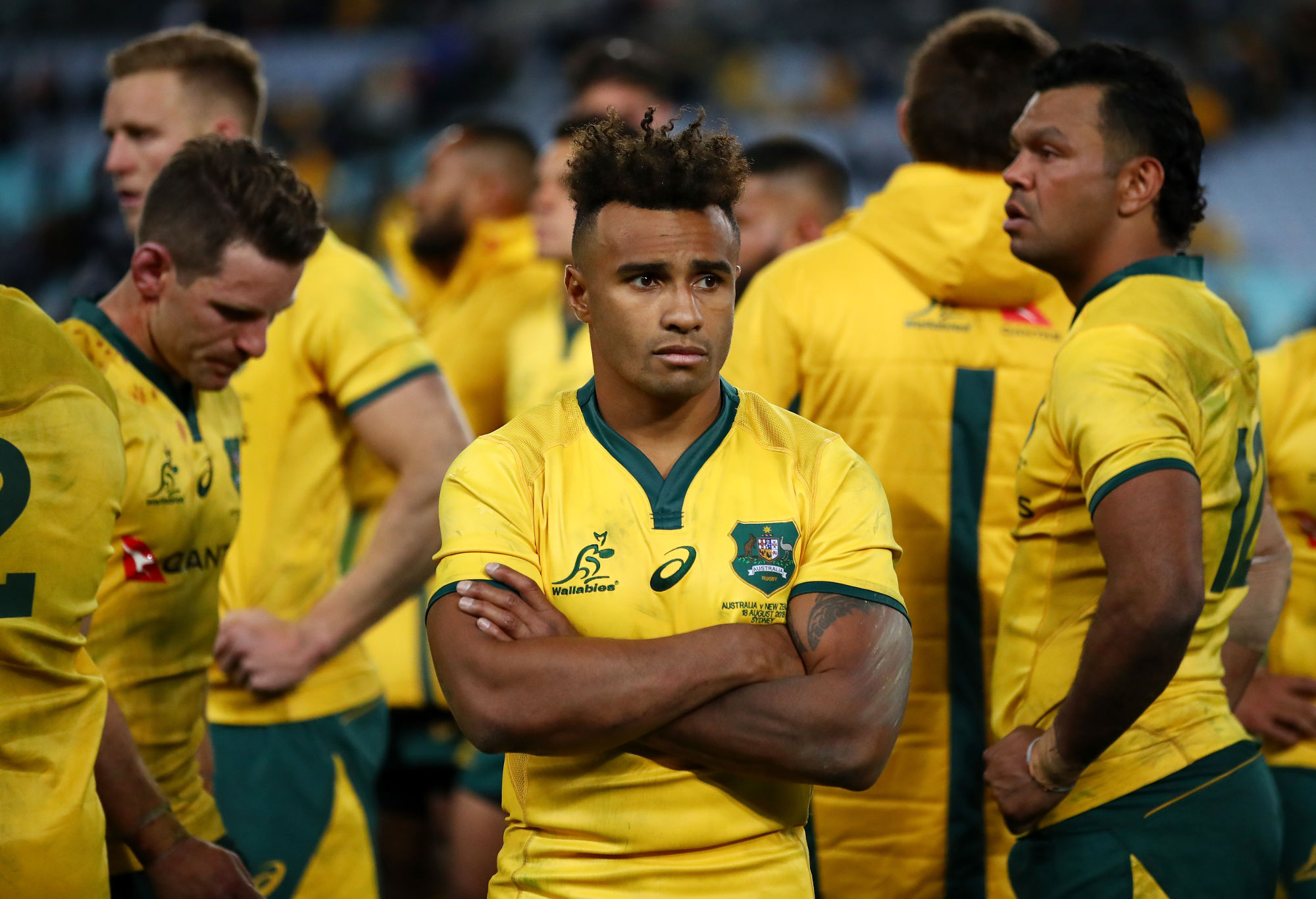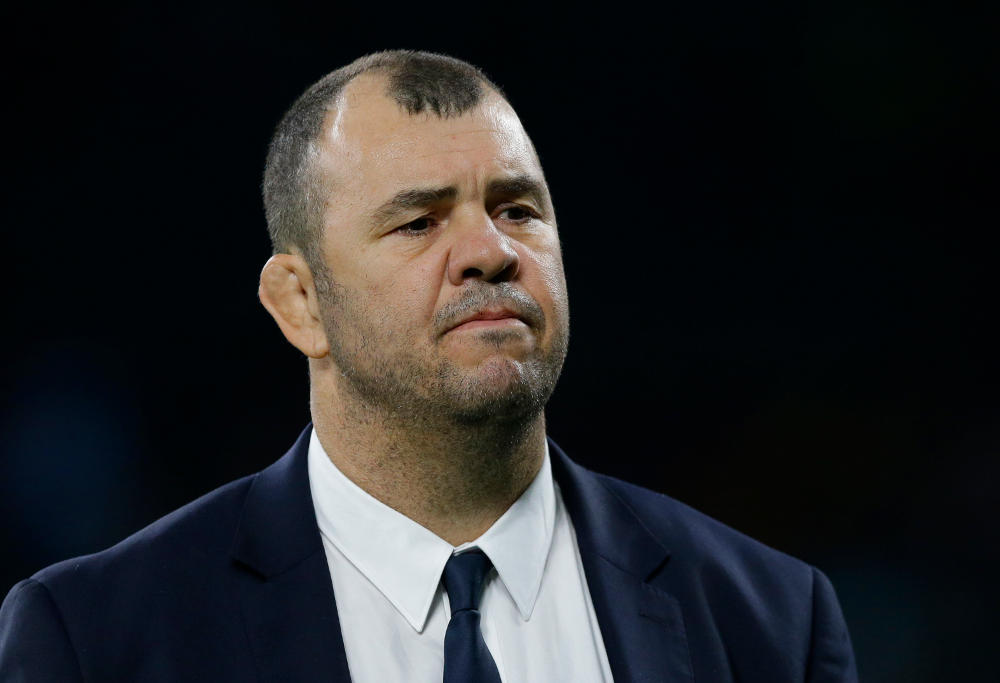Coaches will always try to find positives when asked how they’re going to move on from a loss; this is not an earth-shattering development.
So when Michael Cheika said in the bowels of Nelson Mandela Bay Stadium in Port Elizabeth that, “I think we have made progress” after the Wallabies lost to South Africa 23-12, their sixth loss in eight Tests in 2018, we shouldn’t forget that of course he would say something like that.
As honest as he might want to be in a post-match press conference, he’s hardly going to look straight down the barrel and offer, “I’m disappointed, I think we’ve really gone backwards,” is he?
I’ve not seen the press conference in full, but it would be interesting to know if the follow-up question enquired as to where that progress might have been made.

Michael Cheika and his team are under fire again. (Photo by Michael Dodge/Getty Images)
Even I have to admit it’s difficult to see anywhere on the field where the Wallabies of the last weekend in September look any better than the Wallabies of mid-August, or the Wallabies of June. It’s certainly not in the major areas of attack, defence, and set piece.
And this is going to be Cheika’s biggest challenge for the remaining five Tests of 2018.
Just what strings can he first find and pull to create the major improvements this Wallabies side needs? And never mind next year’s Rugby World Cup, the biggest priority for the Wallabies right now is finishing the 2018 international season well.
The Wallabies head to Argentina this Sunday morning (AEDT), then play New Zealand in Japan later this month, followed by Spring Tour contests with Wales, Italy, and England in November.
It’d be easy to say four wins needs to be the pass mark, but there is so much going on with the Wallabies currently that it’s not as simple as just wins and losses. Four wins would be great, obviously, but improvements in those major areas are arguably even more important.

Where to for the Wallabies? (Photo by Cameron Spencer/Getty Images)
Set piece is the starting point to look back at, and mostly, the Wallabies scrum has been going pretty well this year. A lot of that has had to do with the impact of Taniela Tupou off the bench, and it was certainly interesting to see that his impact as a starter was lessened in Port Elizabeth.
The lineout isn’t so great at the moment, and its decline can be traced pretty much back to the start of the Rugby Championship. Against Ireland in June, and against some of the best lineout forwards in the Six Nations, the Wallabies lineout held strong, losing just four of 38 lineout throws.
Since the Rugby Championship, the Wallabies lineout has faltered badly. On average, the Wallabies have lost 3.6 lineouts per TRC match this year, with the worst being the eight from 13 lost against New Zealand in Bledisloe 1.
Now this can’t all be put down to the return of Tatafu Polota-Nau, but he obviously didn’t play against Ireland in June, so some of it is certainly on him. The non-selection of Brandon Paenga-Amosa in the first few TRC Tests is another factor, particularly since he’d thrown so well in three starts in June.
Forwards coach Simon Raiwalui has been with the side since May, but regardless, I’d have thought the skill of lineout throwing would also be part of Mick Byrne’s remit, too. If Byrne looks after things like kicking and passing and offload skills nationally, then surely lineout throwing is part of that.
How is it that the Wallabies lineout throwing has remained so scratchy for all five TRC games to date?
Defensively, while the Wallabies have benefitted from fewer moving parts in their alignments in 2018 compared to last year – think back to the Bledisloe Tests particularly – they’re still missing way too many tackles to even think about trying to apply defensive pressure.
The nine tackles missed at Port Elizabeth is actually the best record this year – maybe that was one of the areas Cheika was referring to? – they’re still averaging 25 missed tackles a game. Saturday night aside, all seven previous games this year has seen at least 17 tackles missed per game, and with the worst being the 34 missed against Ireland in Melbourne, and the 41 and 39 missed in the two Bledisloe Tests, respectively.

Will Genia of the Wallabies looks dejected after losing the first Bledisloe Cup match. (Photo by Cameron Spencer/Getty Images)
Whatever the outliers, 25 missed tackles a game is way too many. And it’s not like there are trends even this year; it’s not been gradually getting better or worse, it’s been all over the place. The 34 missed in Melbourne were preceded and followed by 18 and 17 misses in the other Ireland Tests. The 39 missed in Auckland was followed by 17 missed tackles against South Africa in Brisbane.
So what’s Nathan Grey doing to address this? If defence is all about attitude, as so many coaches tells us it is, what are they doing to ensure the Wallabies are in the right frame of mind defensively? The Wallabies, we were told, were going to be so much better off this year with Grey and Stephen Larkham not attached to Super Rugby sides, but these defence numbers don’t scream of improvement to me.
Attack coach Larkham has in 2018 produced a Wallabies attack averaging 1.9 tries a game when in 2017 it was more than double this. Where have the tries gone? What is happening in attack that would halve the number of tries being scored within twelve months?
It’s not really a personnel thing. With the exception of Matt Toomua and Jack Maddocks, the backline players of 2018 were there in 2017, too. Dominating possession isn’t really a necessity these days, but the Wallabies have had more ball than the opposition in five of the eight Tests played this year. Only one of those was a win.
So the Wallabies seem to have plenty of ball, but just aren’t converting that into tries in 2018. It’s not like they’re kicking it away, either; they average 17 kicks per game, and have actually been pretty consistent in 2018 – the two outliers are 26 kicks in the first Test of the year against Ireland, and 11 the following week. Over the last three games the Wallabies have kicked 13, 15, and 14 times.
While it’s easy to point out these issues and assign them to the responsible assistant coach, ultimately this all comes back to Cheika.

Michael Cheika (AP Photo/Alastair Grant)
It’s become clear to me over recent weeks that while he clearly doesn’t like the questions about his future as Wallabies coach – who would? – but at the same time, Cheika has never stood out to me as a quitter, or someone who is about to walk away from the task at hand.
But he doesn’t really strike me as a coach who would make changes purely for the purpose of saving his job either, which is to say that I admire him for his selfless desire of wanting the Wallabies to be the best team it can possibly be. On that front, he’s no different to any Wallabies supporter.
That all said, it’s very clear that he needs to look at all aspects of his coaching set-up, and his assistants, and their plans and training techniques, and how they feed into the Wallabies’ overall approach to games. It’s very clear that what they’ve been doing in 2018 isn’t working. This is where the progress is urgently needed.
































































































